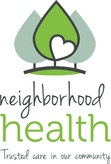Neighborhood Health
Executive Director
| Executive Director | Mr Brian Haile |
|---|---|
| bhaile@neighborhoodhealthtn.org | |
| Term Start | October 2017 |
| Brian's Experience: Brian Haile is the Chief Executive Officer of Neighborhood Health. Before joining Neighborhood Health in 2017, Mr. Haile held numerous positions in the public and private sectors. Over the past decade, Mr. Haile has served as the Deputy Chief of Staff at TennCare, the Director of the Insurance Exchange Planning Initiative of Tennessee, and the Deputy Director for Tennessee's public employee group health plans. Earlier in his career, he served as the eligibility chief for the District of Columbia's Medicaid program. In the private sector, Mr. Haile was the Senior Vice President for Health Care Policy at Jackson Hewitt, the nation's second largest tax preparation firm, and he has worked for two boutique health care consulting firms. Mr. Haile holds the following degrees: • Juris Doctor, Georgetown University Law Center • Master of Public Policy, University of California, Berkeley • Master in Health Economics, University of Cape Town (South Africa) • Bachelor of Science in Foreign Service, Georgetown University A native of Kingsport, Tennessee, Mr. Haile has a license to practice law in his home state. He is married to Maury Nation, a clinical psychologist and professor at Vanderbilt University. |
|
Senior Staff
| Name | Title |
|---|---|
| Mr. Anthony Villanueva | Chief Information Officer |
| Shauna Tucker | Interim Chief Operating Officer |
| Brian Haile | Chief Executive Officer |
| Mr. Ivan Figueredo | Chief Financial Officer |
| Marie Bighem | Chief Human Resources Officer |
| Vivak Bhatt MD | Chief Clinical Officer |
Staff
| Full Time Staff | 220 |
|---|---|
| Part Time Staff | 8 |
| Volunteers | 0 |
| Contractors | 4 |
| Retention Rate | 80% |
Plans & Policies
| Does your organization have a Fundraising Plan? | No |
|---|---|
| Does your organization have a Strategic Plan? | Yes |
| Years Strategic Plan Considers | 3 |
| When was the Strategic Plan adopted? | December 2022 |
| Does your organization have a Management Succession Plan? | Yes |
| Does your organization have a Policy and Procedure Plan? | Yes |
| Does the organization have a Nondiscrimination Policy? | Yes |
| Does the organization have a Whistle Blower Policy? | Yes |
| Does the organization have a Document Destruction Policy? | No |
Evaluation
| Is there a formal evaluation for... | Frequency (if applicable) | |
|---|---|---|
| CEO/Executive Director | Yes | Annually |
| Senior Management | Yes | Annually |
| Non-Management | Yes | Annually |
Affiliations
| Affiliation | Year |
|---|---|
| Center for Nonprofit Management Excellence Network | 2000 |
| Nashville Area Chamber of Commerce | 2000 |
| Nashville Area Hispanic Chamber of Commerce | 2004 |
| Nashville Coalition for the Homeless | 2007 |
| National Association of Community Health Centers | 1972 |
| Primary Care Association of Tennessee | 1972 |
| Tennessee Hispanic Chamber of Commerce | 2004 |
External Assessments and Accreditations
| Assessment/Accreditation | Year |
|---|---|
| NCQA: PCMH Recognition | 2022 |
| The Joint Commission: Ambulatory Health Care Accreditation | 2023 |
| The Joint Commission: PCMH Accreditation | 2023 |
Awards
| Award / Recognition | Organization | Year |
|---|---|---|
| Finalist--Making a Difference | Center for Non-Profit Management | 2005 |
CEO/Executive Director/Board Comments
| Challenges: Staff recruitment, retention, and development are one of management's greatest challenges. The most difficult area of recruitment and retention is with primary care physicians. Not only have training programs for primary care physicians decreased, but the need for primary care physicians has increased, making it very competitive to add to our provider staff. Neighborhood Health meets this challenge as it can generally get loan repayments for clinician, however, retention after an initial three years continues to be difficult. We also partner with medical schools to train providers and encourage them to select community care as their career choice. Other high demand areas include licensed behavioral health providers. Few are trained in a primary care setting and are primarily attracted to mental health settings. Strong Management staff is also at a premium. STAFF TRAINING AND RETRAINING: Staff training in technology is also a challenge. Electronic Health Records are becoming the standard for health organizations. Implementation requires significant retraining and retooling. The level of technology expertise among staff and contractors must constantly improve. CERTIFICATIONS: Certification as a Patient Centered Medical Home as well as Joint Commission accredited. FINANCIAL SUSTAINABILITY: Neighborhood Health is exceptionally dependent upon Federal grants. Given the stress on public resources, we do not expect significant funding growth. Neighborhood Health launched its community fund-raising plan and annual fund-raising breakfast. LEADERSHIP SUCCESSION: The transition of leadership is critical in the next few years. Neighborhood Health has put in place a strong management team that can support leadership transition. Opportunities: The greatest opportunities are with health reform and partnerships. These continue to be an important part of Neighborhood Health strategy. |

